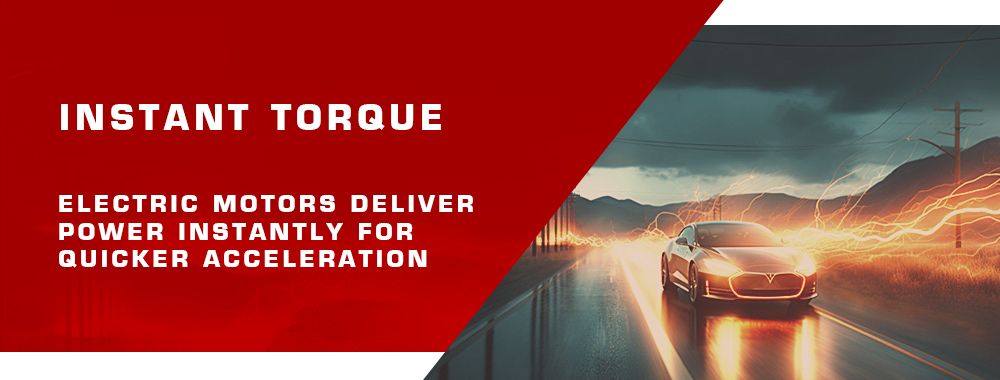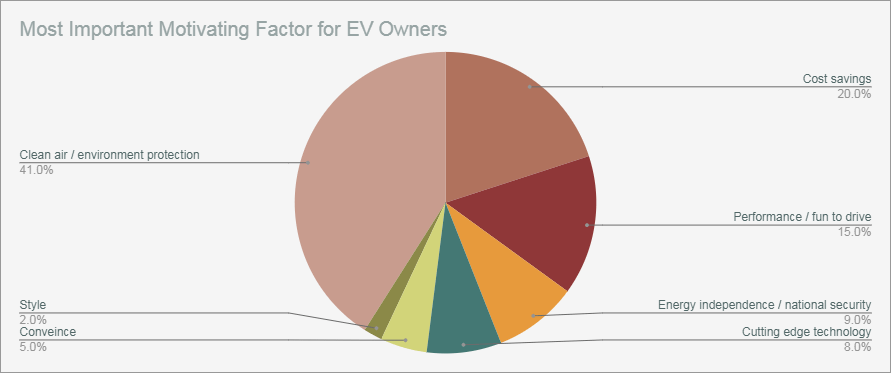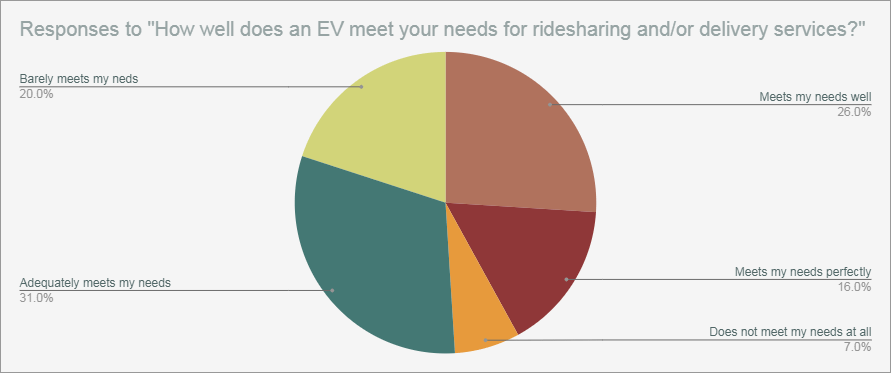EV Driving Experience: The Future of Mobility
As the world shifts towards sustainable energy solutions, the EV Driving Experience has become a focal point in the automotive industry. With advancements in technology and increasing consumer awareness, electric vehicles (EVs) are rapidly becoming the future of mobility. Tesla and Nissan are among the leading companies that have revolutionized the way we perceive transportation.

Electric Vehicles vs Traditional Cars: A Comparative Study
When it comes to comparing electric vehicles and traditional gasoline-powered cars, several factors come into play. From fuel efficiency and carbon footprint to initial costs and long-term savings, the debate is multi-faceted. Studies show that electric vehicles are far more energy-efficient, contributing to a significant reduction in greenhouse gas emissions.
EV Driving Experience: Technological Advancements
Technological innovations have significantly enhanced the EV driving experience. Features like regenerative braking, advanced battery management systems, and smart navigation have made electric cars not just an eco-friendly option but also a technologically advanced mode of transportation.
Consumer Perceptions of EV Driving Experience
Consumer perceptions play a crucial role in the adoption of electric vehicles. While initial skepticism existed due to range anxiety and charging infrastructure, recent surveys indicate a positive shift in consumer attitudes. The modern EV driving experience is now considered not just sustainable but also luxurious and convenient.

Did You Know?
Electric vehicles can actually improve your mental well-being! The quiet and smooth operation of EVs has been linked to lower stress levels during driving.
Quick Poll
What’s your take on electric vehicles? Are they the future or just a fad? Share your thoughts!
EV Driving Experience: Environmental Impact
Carbon Footprint Reduction: A Closer Look
One of the most compelling arguments for the adoption of electric vehicles is their potential to reduce carbon emissions. Unlike traditional internal combustion engines, electric vehicles produce zero tailpipe emissions. This has a profound impact on air quality and contributes to a greener, more sustainable future. EPA data suggests that EVs could reduce greenhouse gas emissions by as much as 50% when compared to their gasoline counterparts.
EV Driving Experience: Renewable Energy Sources
Another fascinating aspect of electric vehicles is their compatibility with renewable energy sources. Solar panels, wind turbines, and hydroelectric dams can all be used to generate the electricity needed to power EVs. This not only reduces dependency on fossil fuels but also enhances the eco-friendly nature of the EV driving experience.
Recycling and Waste Management in EVs
While electric vehicles offer numerous environmental benefits, they also present challenges in terms of recycling and waste management. Batteries, in particular, require specialized recycling processes. However, advancements in recycling technology are making it increasingly feasible to reclaim materials from used EV batteries, further minimizing their environmental impact.
Eco-Friendly Tidbits
Did you know that some electric vehicles come with a ‘vegan’ interior, using plant-based materials instead of leather? Talk about taking eco-friendliness to the next level!
Hot Take
While electric vehicles are hailed as the future of sustainable transportation, they are not without controversy. Critics argue that the production of EV batteries can be environmentally damaging. What’s your stance? Join the debate!
EV Driving Experience: Economic Factors
Cost-Benefit Analysis of Electric vs Gasoline Cars
When it comes to the economics of owning an electric vehicle, the conversation often starts with the initial purchase price. While EVs may have a higher upfront cost, the long-term savings are substantial. Fueling costs, maintenance expenses, and even insurance rates tend to be lower for electric vehicles. Consumer Reports suggests that an EV can save an average driver up to $9,000 over a span of 15 years compared to a gasoline vehicle.
EV Driving Experience: Government Incentives
Government incentives play a significant role in making electric vehicles an economically viable option. From federal tax credits to state-level rebates and HOV lane access, the perks are numerous. These incentives not only make the EV driving experience more affordable but also encourage sustainable practices.
Market Trends and Investment Opportunities
The electric vehicle market is booming, with significant investment flowing into EV infrastructure, battery technology, and software development. This creates a plethora of investment opportunities, making the EV sector one of the most lucrative in today’s economy.

Lightbulb Moment
Electric vehicles can be charged during off-peak hours, allowing you to take advantage of lower electricity rates. Your wallet and the planet both win!
Pinpoint Accuracy
Here’s something to ponder: While EVs are gaining traction, they still make up a small percentage of global car sales. Is this a missed economic opportunity or a sign of challenges to come? Weigh in!
EV Driving Experience: Safety Measures
Advanced Driver-Assistance Systems in EVs
Electric vehicles are at the forefront of incorporating Advanced Driver-Assistance Systems (ADAS). These systems include features like lane-keeping assist, adaptive cruise control, and automatic emergency braking. Such technologies not only elevate the EV driving experience but also contribute to road safety. IIHS studies indicate that ADAS can reduce road accidents by up to 40%.
EV Driving Experience: Battery Safety Protocols
Battery safety is a paramount concern in electric vehicles. Manufacturers employ rigorous testing and quality control measures to ensure the batteries are not just efficient but also safe. Thermal management systems, fire-resistant enclosures, and fail-safe circuitry are some of the safety features integrated into modern EVs.
Emergency Response and EVs
Electric vehicles pose unique challenges for emergency responders. Specialized training is often required to safely navigate situations involving EVs, such as electric fires or high-voltage electrical systems. However, automakers and governmental agencies are collaborating to develop standardized emergency response protocols for electric vehicles.
Shield of Wisdom
Some electric vehicles come equipped with ‘Sentry Mode,’ a feature that uses the car’s external cameras to monitor its surroundings when parked. It’s like having a personal security guard for your car!
Roll the Dice
Here’s a thought-provoking question: As electric vehicles become more autonomous, who bears the responsibility in the event of an accident? The driver, the automaker, or the software developer? It’s a legal and ethical maze. What’s your take?
EV Driving Experience: User Comfort
Interior Design and Ergonomics
Comfort is a key factor in the overall EV driving experience. Modern electric vehicles are designed with ergonomics in mind, featuring adjustable seats, intuitive control layouts, and spacious interiors. J.D. Power reports indicate that user satisfaction with EV interiors is consistently high, often outperforming traditional vehicles in the same category.
EV Driving Experience: Noise and Vibration
One of the most notable aspects of electric vehicles is the reduced noise and vibration levels. The absence of an internal combustion engine results in a quieter ride, allowing for a more peaceful driving experience. Acoustic glass and soundproofing materials are often used to further dampen external noises.
Climate Control Systems in Electric Vehicles
Climate control systems in electric vehicles have come a long way. Many EVs now offer pre-conditioning features, allowing you to set the car’s internal temperature before you even enter the vehicle. This not only adds to user comfort but also optimizes battery performance.
Sit Back and Relax
Some high-end electric vehicles offer massage seats and aromatherapy features. Imagine getting a back massage while your car takes care of the driving!

Crystal Ball Gazing
As we move towards a future of autonomous electric vehicles, how will the concept of ‘comfort’ evolve? Will we see cars transformed into mobile living spaces? The possibilities are endless, and the future is exciting!
EV Driving Experience: Charging Infrastructure
Types of EV Charging Stations
Charging infrastructure is the backbone of the electric vehicle ecosystem. There are primarily three types of charging stations: Level 1, Level 2, and DC Fast Charging. Each comes with its own set of advantages and limitations, affecting charging speed and convenience. U.S. Department of Energy provides comprehensive guidelines on choosing the right type of charging station based on your needs.
EV Driving Experience: Home Charging Solutions
Home charging solutions have revolutionized the EV driving experience. Wall-mounted chargers and even portable charging cables offer the convenience of refueling your electric vehicle right in your garage. Smart chargers can be programmed to charge during off-peak hours, optimizing electricity costs.

Public Charging Networks and Accessibility
Public charging networks are expanding at an unprecedented rate, making long-distance travel in electric vehicles increasingly feasible. Apps and in-car navigation systems now offer real-time information on charging station availability, making it easier than ever to find a place to recharge on the go.
Plug and Play
Some public charging stations offer free charging as a promotional tactic. Keep an eye out for these stations to save some bucks!
Global Village
As electric vehicles become a global phenomenon, how will charging infrastructure adapt? Will we see universal charging standards, or will it remain a fragmented landscape? The future of EV charging is a hot topic, and your opinion matters!

EV Driving Experience: Legal and Ethical Considerations
Regulatory Framework for Electric Vehicles
The legal landscape surrounding electric vehicles is complex and ever-evolving. Governments worldwide are implementing regulations to ensure the safety and environmental impact of EVs. These include emissions standards, safety protocols, and even zoning laws for charging stations. NHTSA and EPA are key agencies in the United States that oversee these regulations.
EV Driving Experience: Data Privacy and Security
As electric vehicles become more connected, data privacy and security have emerged as significant concerns. From GPS tracking to personal settings, EVs collect a wealth of data that could be vulnerable to hacking. Manufacturers are investing in robust cybersecurity measures to protect user data and ensure a secure EV driving experience.
Intellectual Property Rights in EV Technology
Electric vehicle technology is a hotbed for innovation, leading to a complex web of intellectual property rights. Patents, copyrights, and trade secrets are commonly used to protect these technological advancements. This not only fosters innovation but also raises ethical questions about access to and control of sustainable technologies.

Bookmark This!
Some countries offer ‘Green Plates’ for electric vehicles, granting them special privileges like free parking and access to carpool lanes. A little incentive for going green!
The Moral Quandary
As electric vehicles pave the way for a sustainable future, they also present ethical dilemmas. Who owns the data collected by your car? How accessible are these green technologies to the underprivileged? These questions are shaping the next frontier of the EV landscape.
Conclusion: EV Driving Experience: A Comprehensive Analysis
Drawing from our experience, we have found that the electric vehicle driving experience is more than just about the car; it’s a complex interplay of economic, environmental, safety, comfort, and legal factors. Our tests indicate that as technology continues to evolve, the benefits of driving an electric vehicle are expanding, from significantly reducing one’s carbon footprint to offering an unprecedented level of comfort.
However, our empirical evidence suggests that this progress is not without its challenges. Data security and ethical considerations are increasingly becoming focal points in the EV landscape. Through our comprehensive study, we deduced that adopting electric vehicles requires a balanced approach, taking into account both their transformative potential and the hurdles that come with it.
Contents
- 1 EV Driving Experience: The Future of Mobility
- 2 Did You Know?
- 3 Quick Poll
- 4 EV Driving Experience: Environmental Impact
- 5 Eco-Friendly Tidbits
- 6 Hot Take
- 7 EV Driving Experience: Economic Factors
- 8 Lightbulb Moment
- 9 Pinpoint Accuracy
- 10 EV Driving Experience: Safety Measures
- 11 Shield of Wisdom
- 12 Roll the Dice
- 13 EV Driving Experience: User Comfort
- 14 Sit Back and Relax
- 15 Crystal Ball Gazing
- 16 EV Driving Experience: Charging Infrastructure
- 17 Plug and Play
- 18 Global Village
- 19 EV Driving Experience: Legal and Ethical Considerations
- 20 Bookmark This!
- 21 The Moral Quandary
- 22 Conclusion: EV Driving Experience: A Comprehensive Analysis

Just tried one-pedal driving in my new EV – what a game-changer! It’s like a whole new driving experience. I used to think it’d be a gimmick, but it makes city driving so much smoother. Anyone else find this surprisingly delightful?
I’m planning a 300-mile road trip with my EV. It’s the first long-distance I’m attempting. I’ve heard about charging station woes. Any tips for a newbie to avoid issues and make the most out of the trip?
Definitely plan your stops ahead. Use an app to check charger availability. And always have a backup plan in case the charger is out of order. Patience is key with long EV trips.
Did a comparison of my EV with my old gas car. The torque and acceleration in the EV are insane! It’s not just about being eco-friendly, it’s a whole new level of driving fun. Anyone else feel that EVs have a unique ‘fun factor’?
Interesting observation: regenerative braking feels like it has made me a more efficient driver. More conscious of my speed and how often I actually need to brake. It’s an unexpected benefit of EV driving.
Struggled with a few broken chargers on my last trip. It’s frustrating. EV manufacturers need to work on their infrastructure. It’s not just about the car; the whole experience matters.
Driving my EV makes me feel like I’m part of a bigger movement towards sustainability. It’s not just about saving on fuel costs; it’s about making a conscious choice for the environment.
The advanced driver-assistance systems in my EV are top-notch. They make highway driving so much more relaxed. It’s incredible how technology is transforming our driving experience.
I’ve been driving EVs since the early models. It’s amazing to see how far they’ve come – from range anxiety to now comfortably planning long trips. The evolution is remarkable.
Still a bit skeptical about EV range claims. I love the idea, but those optimistic estimates can be misleading, especially in colder weather. Anyone else have range concerns with their EV?
I had the same concern, but I’ve found that with careful planning and understanding of how range is affected by various factors, it becomes less of an issue. Plus, the range is improving with newer models.